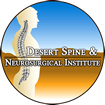Healing and Recovery
Healing is the body’s natural process of restoring its own tissues to a normal or nearly normal state. Although healing may be improved by general good health, proper nutrition, rest, and physical fitness, it will occur without one’s having to work at it.
Recovery is the process during which one works to become well. It requires a gradual but persistent effort to increase physical strengths and minimize weaknesses. One must concentrate on improvement, not on what symptoms remain. This focus on progress, combined with the constant effort to improve, maintains the positive attitude that will speed the return to normal daily activity.
Hospital Recovery
Observation
The patient will be transferred from the recovery room after surgery to the intensive care unit (ICU), where his condition can be more closely monitored. This is a highly specialized area providing close observation with specialized nursing care. lntracranial pressure may be continuously measured as the patient recuperates. When fully conscious and stable, he will be returned to his regular room.
Pain
A dull headache is usually all the post-operative pain to be expected. Pain medication will be ordered for generalized discomfort.
Incision care
The incision will be covered with a turban-like dressing. When this dressing is removed, some other head covering may be used. The skin sutures usually are removed within a week.
Nutrition
Intravenous (I.V.) fluids will be ordered during the early recovery period and continued until liquids may be taken by mouth. For the first few days, all fluids taken will be carefully monitored. As the danger of brain swelling lessens, more fluids may be taken. When there is no nausea or vomiting, and the patient is fully awake, both liquids and diet may be increased.
Emotional changes
It is normal to feel discouraged and tired for several days after surgery. These feelings may be the body’s natural reaction to the cutback of extra hormones it put out to handle the stress of surgery. Although emotional let-down is not uncommon, it must not be allowed to get in the way of the positive attitude essential to recovery and the return to normal activity.
Discharge from the hospital
The amount of time spent in the hospital may be different for each patient. Discharge will be planned when the patient’s recovery can be handled at home or in an alternate facility.
Home Recovery
The home recovery program will be individualized for each patient. It will depend largely on the extent of brain injury caused by the tumor, the patient’s ability for self-care, and the progress of his recovery.
Fever, a severe headache, or any swelling or drainage around the incision should be reported to the physician immediately.
During home recovery, changes in the patient’s speech, movement, or mental ability may be noticed. These should be discussed with the physician during post-operative visits. Speech, occupational, or physical therapies may then be ordered.
